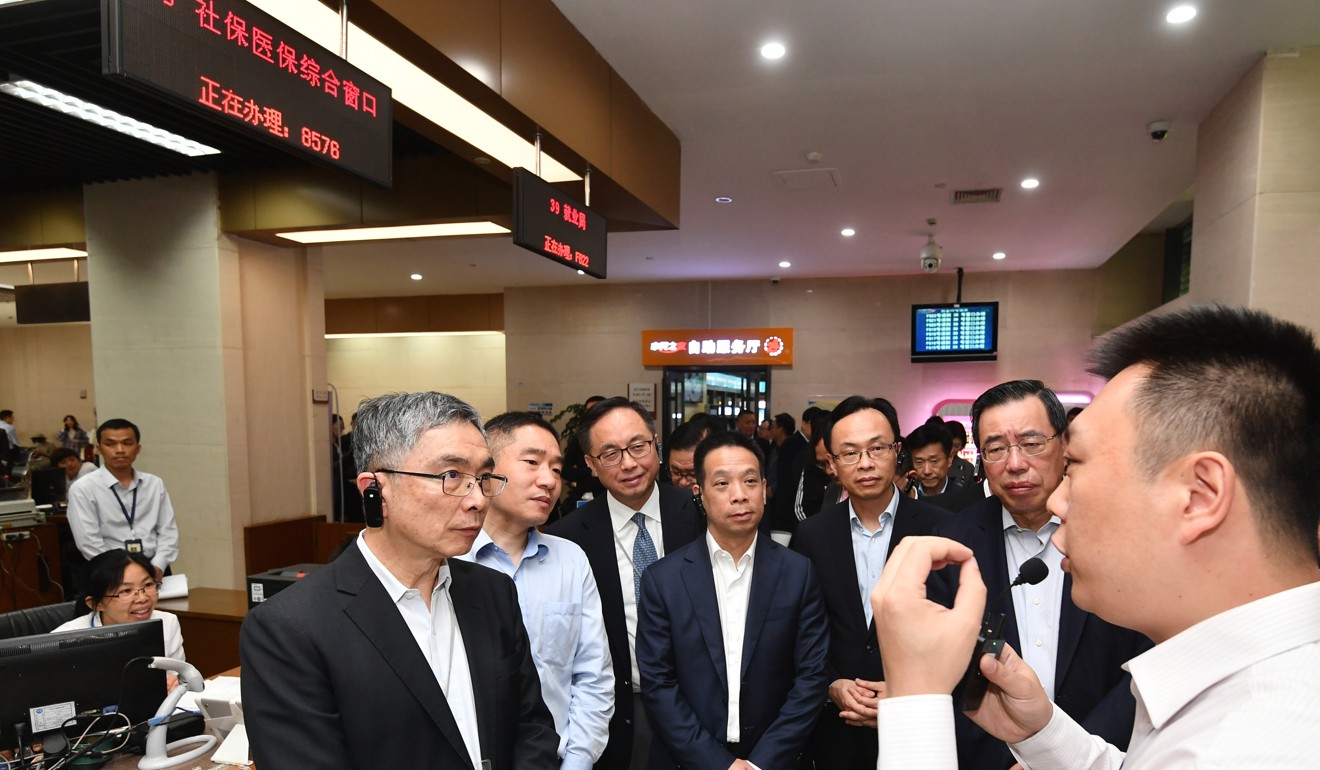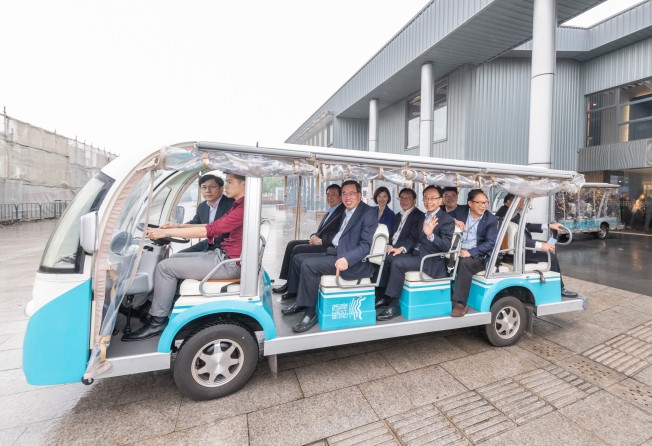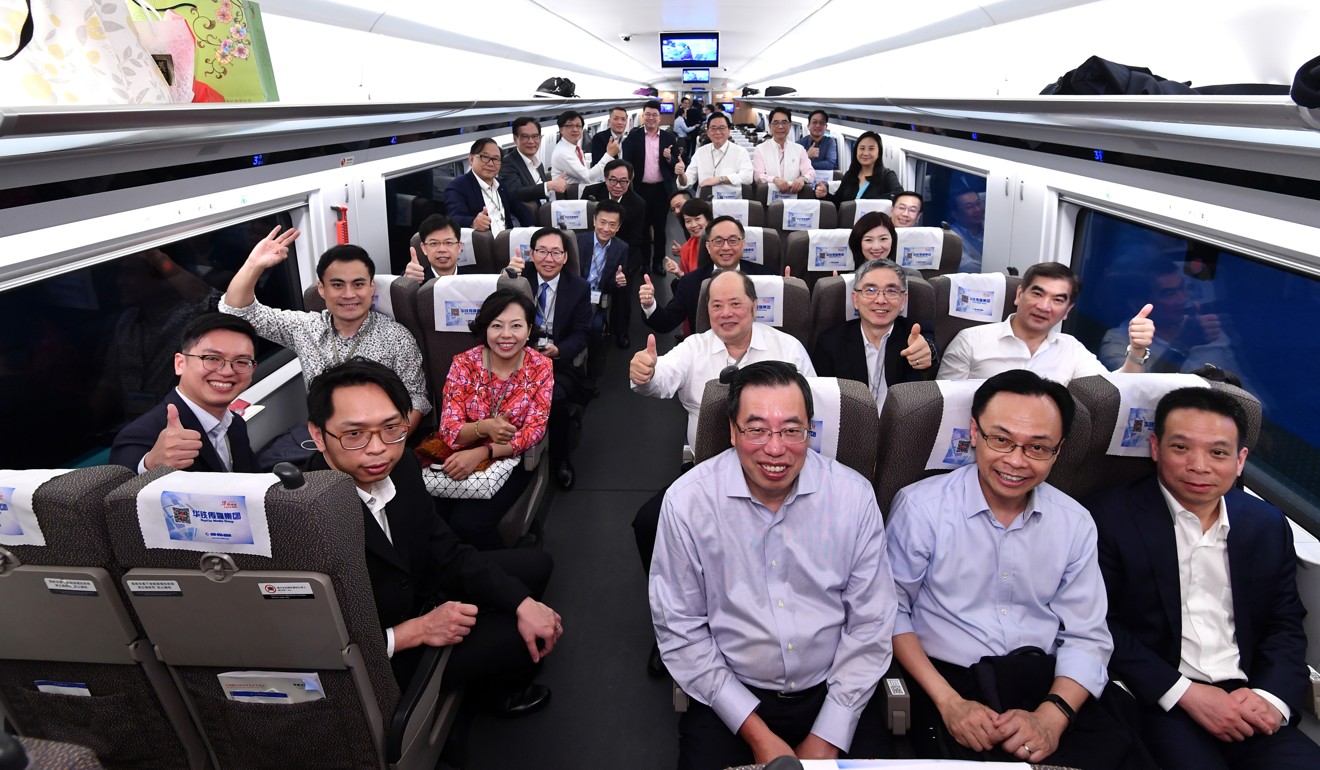
Shanghai official urges Hong Kong lawmakers to set aside ‘narrow mindsets’ and learn from progress of Yangtze River Delta
- Legco members on four-day tour of Shanghai and Hangzhou
- Trip was boycotted by pro-democracy lawmakers over extradition bill

A top Shanghai official has urged visiting Hong Kong lawmakers to put aside narrow thinking and focus on the greater national good as he explained what the Greater Bay Area could learn from the Yangtze River Delta.
Ma Chunlei, director of Shanghai’s Municipal Development and Reform Commission, also said on Tuesday that gathering officials from different cities to work under one roof would facilitate economic integration.
The four-day mainland trip, which was open to all Legislative Council members, started on Sunday. The trip to Shanghai and Hangzhou was boycotted by pro-democracy lawmakers who said the political atmosphere had soured over a bill that would allow the transfer of fugitives to jurisdictions the city lacks an extradition deal with, including mainland China, Macau and Taiwan.
Huang Liuquan, deputy director of the State Council’s Hong Kong and Macau Affairs Office, travelled from Beijing to join the delegation in Shanghai.
The 22 pro-establishment legislators met Ma on Tuesday to learn about the development of the Yangtze River Delta Economic Region, which is made up of Shanghai municipality and Zhejiang, Jiangsu and Anhui provinces. The region accounted for about 20 per cent of China’s gross domestic product in 2018.

Andrew Leung Kwan-yuen, the president of the Legislative Council, said the development of Greater Bay Area – a national plan to integrate Hong Kong, Macau with nine Guangdong cities in the Pearl River Delta – had much to learn from the experiences of the Yangtze region.
“Director Ma mentioned that we should all focus on the overall development of the nation and region, and get rid of narrow and short-sighted mindsets,” Leung said after the meeting.
He added that Ma believed Hong Kong and the Yangtze River Delta could create synergy as both regions developed.
Lawmaker Chan Kin-por said he asked Ma how cities with different interests could put aside internal conflicts and cooperate.
“He told us that they had a bumpy start as well, but things changed when mutual trust was built through close communication,” Chan said.
He said it was advised that projects that had consensus should be pushed ahead first, with the more controversial projects saved for later.

He quoted Ma as saying that communication improved after officials from different cities were arranged to work in the same location, namely the Yangtze River Delta Regional Cooperation Office that was set up in Shanghai last year.
Chan said the Greater Bay Area could learn from that experience and set up its own cooperation office across the border.
After arriving in Hangzhou by high-speed train, the delegation visited the city’s public service centre to observe the city government’s campaign to provide one-stop public services with the help of mobile apps and self-service computers.
Jonathan Ho Kai-ming, of the Federation of Trade Unions, was impressed.
“You can see how Hong Kong is lagging behind. We even need to fill in written forms to apply for the HK$4,000 cash [US$510]handout,” he said, referring to the city’s cash handout plan announced last year.
About 2.8 million residents expected to receive cash from the government, but many complained that the application process was too complicated, especially when electronic application forms were unavailable.
But Hong Kong’s Secretary for Innovation and Technology Nicholas Yang Wei-hsiung, who was also part of the delegation, along with three other top officials, said that while Hong Kong could learn from Hangzhou’s experience of using technology to improve public service efficiency, he would not compare the cash handout plan with Hangzhou’s system.
“I think we should look at their mindset and culture, rather than focusing on one single issue ... Hong Kong’s way of doing things is to let people have a choice, and make use of the market to develop a smart city and reflect its character,” he said.
Yang added that it is also important to learn from failures during the process of technological innovation.